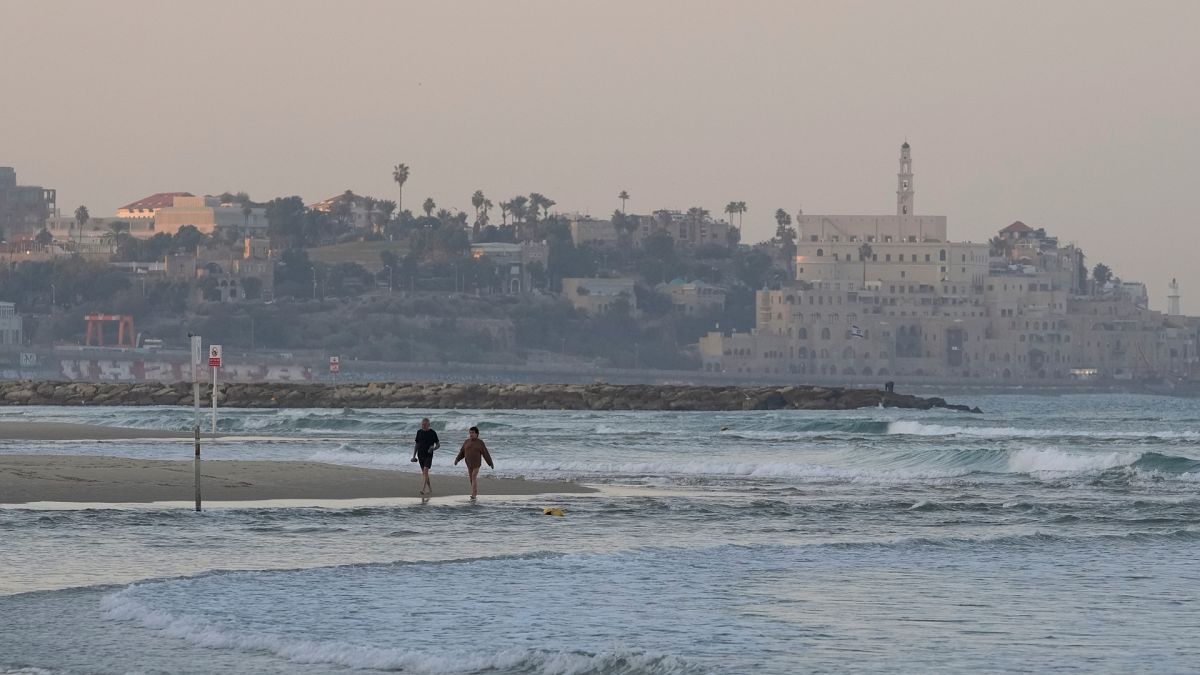The UK Foreign Office (FCDO) changed official travel advice which warned against “all travel” or “all but essential travel” to the majority of Israel.
Travel advisories have changed for key tourist destinations including Tel Aviv, Jerusalem, Eilat, the Dead Sea, Galilee and Haifa. Visitors are now only advised to check advice before they travel to these areas.
The FCDO still advises against all but essential travel to areas within some parts of Israel and the Occupied Palestinian Territories including Gaza and the West Bank. It also advises against travel to areas within 500 metres of the border with Syria and Gaza.
FCDO advises against all but essential travel to the area between the Lebanon border and (but not including) Route 89 excluding Nahriyyah.
- Europe’s travel strikes: Flight and train disruption you can expect in December and January
- Romania and Bulgaria will be in the Schengen zone from January. What will change for travellers?
Travel advisories have been lifted after they were imposed 15 months ago in October 2023.
The updated advice says the frequency of rocket attacks has decreased significantly but warns that there is “increased risk of political tension” which could cause demonstrations and clashes around anniversaries of significant events.
“The Israeli government declared a state of emergency across the whole country on 7 October [2023] and this remains in place,” the FCDO says. It adds that international air and land borders could close at short notice and visitors should check the latest information before they travel.
Is it safe to travel to Egypt?
Escalating tensions in the region have left many concerned about travelling to neighbouring countries.
Despite lifting travel warnings for Israel, the FCDO still advises against visiting large areas of Egypt. This includes within 20km of the Egypt-Libya border – except for the town of El Salloum, where it advises against all but essential travel – and the North Sinai Governorate.
The FCDO advises against all but essential travel to the northern part of the South Sinai Governorate, beyond the St Catherine-Nuweibaa road, except for the coastal areas along the west and east of the peninsula.
Its advice is the same for the Ismailiyah Governorate east of the Suez Canal, the Hala’ib Triangle, the Bir Tawil Trapezoid and the area west of the Nile Valley and Nile Delta regions, except for:
- Luxor, Qina, Aswan, Abu Simbel and the Valley of the Kings
- the Faiyum Governorate
- the coastal areas between the Nile Delta and Marsa Matruh
- the Marsa Matruh-Siwa road
- the oasis town of Siwa
- the Giza Governorate north-east of the Bahariya Oasis
- the road between Giza and Farafra (but FCDO advises against all but essential travel on the road between Bahariya and Siwa)
- Bahariya Oasis, Farafra, the White Desert and Black Desert
Is it safe to travel to Lebanon right now?
Lebanon lies to the north of Israel and shares a border. Despite a ceasefire between Israel and Lebanese Hizballah coming into force on 27 November, the FCDO says the security environment remains unpredictable.
It advises against all travel to Lebanon and urges Britons to leave by commercial means. Foreign offices in other European countries, including Ireland and France, have also advised against all travel to the country.
Is it safe to travel to Syria right now?
The FCDO advises against all travel to Syria due to “ongoing conflict and unpredictable security conditions”. It urges all British nationals to leave the country by any practical means.
- EU’s biometric Entry/Exit border system set to launch in 2025: Who’ll need to use it?
The Syrian government of Bashar al-Assad fell in early December, bringing a shocking end to his family’s 50-year reign following an offensive by Islamist rebels.
Is it safe to travel to Jordan right now?
Jordan shares a border with Israel and the West Bank as well as with Syria.
The FCDO advises against all travel to within 3km of the border with Syria but borders remain open and most tourist destinations in Jordan have been unaffected by the instability.
Some flights to Amman and Aqaba airports have been affected so it is worth checking before you travel.

